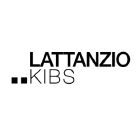WORKING WITH DG ECHO AS AN NGO PARTNER | 2021 - 2027
CERTIFIED FINANCIAL STATEMENTS (“CFS”)
In February 2024, The CFS was introduced by DG ECHO and initially, applied to mono-beneficiary MGAs with Partners identified as having a high error rate (>2%) when DG ECHO’s contribution is ≥ EUR 325,000. This approach will continue to apply until a positive reassessment and lifting of the measures is confirmed by DG ECHO.
Moreover, as of 1 January 2025, the CFS will apply to:
- Multi-beneficiary grants - MultiBEN (also called ‘consortia’) - to all co-beneficiaries who receive a DG ECHO contribution that is equal to or above (≥) EUR 325,000;
- Programmatic Partnership Projects (PP).
The CFS is a commonly used tool within the European Commission to build assurance on the regularity of transactions in EU-funded activities. Due to its cost, both in terms of time and resources, DG ECHO has decided for the time being to apply the CFS with a narrow scope, only where its results can provide the highest impact in terms of financial assurance.
DG ECHO initially introduced the CFS in response to the results of an external audit that identified an error rate above 2% for some Partners. The error rate is calculated based on an average of three years. As of January 2025, due to the more complex nature of humanitarian projects (i.e. multi-annual, multi-county and multi-beneficiary), the applicability of the CFS will be extended to consortia and Programmatic Partnership projects. The usefulness of the CFS, however, goes beyond situations of high-error rate and is an important tool to facilitate the financial liquidation of complex and multi-layered activities (such as consortia and programmatic partnerships).
The error rate is built on the average of audited values over a three-year period. Some projects may have rates lower or much higher than 2%. To lift the approach, it is crucial for the error rate to be below the 2% threshold.
The conditions for the applicability of the CFS do not change. If a mono-beneficiary grant is changed to a multi-beneficiary grant, or vice-versa, the applicability (or not) of the CFS will be clearly updated, as applicable, through an amendment letter.
The CFS must be submitted only at the Final Report stage and only if the requested EU Contribution to costs is above the threshold set in the Data Sheet of the Agreement (currently ≥ 325 000 EUR).
According to the article 24.5 of the MGA “if a beneficiary does not submit a certificate on the financial statements (CFS) or the certificate is rejected, the accepted EU Contribution to costs will be capped to reflect the CFS threshold”.
If the beneficiary fails to submit the CFS, the maximum EU Contribution to costs for the beneficiary will be capped at the CFS threshold in the Data Sheet minus one Euro. This is the approach suggested by the Commission’s central budgetary services to ensure a fair and consistent remedy for non-compliance.
Example: The beneficiary requested in total EUR 490 000 as EU funding for costs. According to the Data Sheet of the grant agreement, a CFS is necessary if the requested EU Contribution to costs exceeds EUR 325 000. If the beneficiary does not submit the CFS, the maximum EU Contribution to costs will be capped at EUR 324,999.
No, the deadline (schedule) of the final payment does not change and remains as foreseen in point 4.2 of the Data Sheet of the agreement.
Partners may use the standard interface for contract-management (APPEL) to request a postponement of the Final Report’s due date where needed (e.g. in case of additional time needed or delays in the audit/Certificate).
This approach is not automatic and must be requested and justified each time it is needed – so it is important that the Partner refers expressly to the ‘contractual requirement for Certified Financial Statements’ as a basis for the extension request.
If a Partner wishes to extend the deadline for the submission of the Final Report, it will need to submit a modification request (MR) through the APPEL interface. Step-by-step procedures to follow are available at this link:
https://www.dgecho-partners-helpdesk.eu/ngo/changes/amendments
Yes, the costs incurred by the IPs (as reflected in the category D.1 “Financial support to third parties” of the budget/cost statement) contribute to the CFS threshold (€325,000) and, where that threshold is surpassed, the correct implementation and use of the costs incurred by the IPs must also be covered by the relevant CFS. These costs are part of the total costs declared by the partner and should therefore be part of the CFS checks.
In a multi-beneficiary MGA, to identify which CFS the IP’s costs fall under, it depends on under whose responsibility the Implementing Partner (IP) falls:
- If the IP is under the responsibility of the Lead Partner (Coordinator) or if its tasks responsibilities are distributed across the entire Action, the costs incurred by the IP count toward the €325,000 threshold for the Lead Partner/Coordinator (COO). Therefore, the expenses of the IP must be covered in the CFS submitted to DG ECHO by the Coordinator (COO).
- If the IP is under the responsibility of a co-beneficiary, the costs incurred by the IP count toward the €325,000 threshold for that co-beneficiary. Consequently, the co-beneficiary will also be subject to the CFS.
- If a consortium includes a co-beneficiary managing an EU contribution below €325,000 (including its Implementing Partners), the expenditures of that co-beneficiary and its IPs are not subject to the CFS requirements.
It is the responsibility of the DG ECHO partner to choose the IPs and other participants in project implementation, and to ensure that the correct supporting evidence is available.
No, the partners who are subject to the CFS obligation do not need to provide the General Ledger along with the final financial report. If a consortium includes a co-beneficiary managing an EU contribution below €325,000, the expenditures of that co-beneficiary and its IPs are not subject to the CFS requirements, but instead the General Ledger must be submitted.
Yes, generally even if there is or will be a field audit, the Action will need a CFS where applicable.
According to Article 24.2 of the MGA, “if the costs (or a part of them) were already audited by the granting authority, these costs do not need to be covered by the certificate and will not be counted for calculating the threshold (if any)”. This is intended to avoid duplication of efforts and costs where sufficient assurance has already been obtained on certain costs.
However, DG ECHO Partners are not usually required to declare any expenses to the Commission at the time of the field audit. Therefore, in most cases, even where a field audit has been carried out, all expenses must still be covered by the CFS and be counted for calculating the CFS threshold.
When the incident can be resolved by excluding the costs from the financial statement, the concerned expense must be rectified. Provided the financial statement reflects the correct value adjusted in accordance with the auditor’s findings, the incidents do not need to be mentioned in the CFS.
If the incident cannot be rectified by excluding the costs from the financial statement or is of a more serious systemic nature, it should be reported in the CFS. Cases where the auditor has doubts should also be reported. Additionally, the auditor is requested to mention any general comments and other observations that may be relevant for the assessment (or its follow-up).
Provided a single certificate is issued at the end of the project covering the entire reporting period, DG ECHO does not impose any specific timing for the checks that Partners may arrange with their auditors. Partners may not incur any extra costs in the Action’s budget due to their decision to certify the financial statements on a yearly basis. Partners should also consider that the exchange rate must take into account the whole reporting period. Therefore, any amounts reflected in the yearly statements would need to be adjusted according to the exchange rate calculated at the end of the reporting period.
Yes. The estimated costs related to the CFS are eligible, providing they are part of the direct costs of the action. It is recommended to include those costs at proposal (RQ) or, where applicable, at modification request (MR) stage and to present them on a specific budget line. In any event, Partners can still include the CFS costs later on in their final financial report by reallocating costs from another budget line.
As the CFS is introduced for more complex multi partner projects and PP’s, wherever the CFS requires a contractual postponement of the reporting deadline, the cost ceiling for CFS related activities, in principle remains of one full-time staff equivalent but for a maximum of as many months needed to submit the final report (including the CFS). In addition, increasing the number of full-time equivalents could exceptionally be accepted if the Partner can clearly justify the need for an increased number of full-time staff equivalents in the Action budget.




